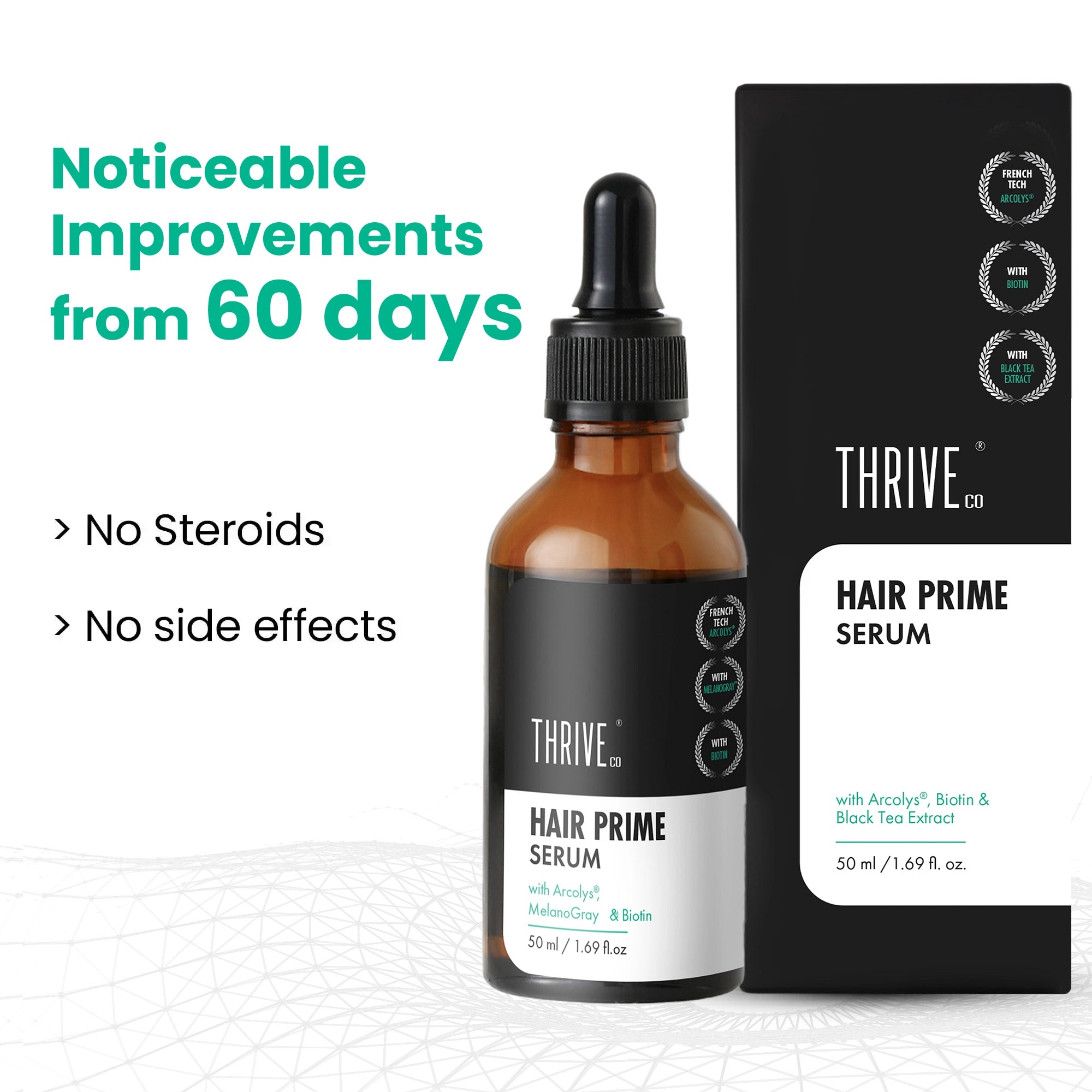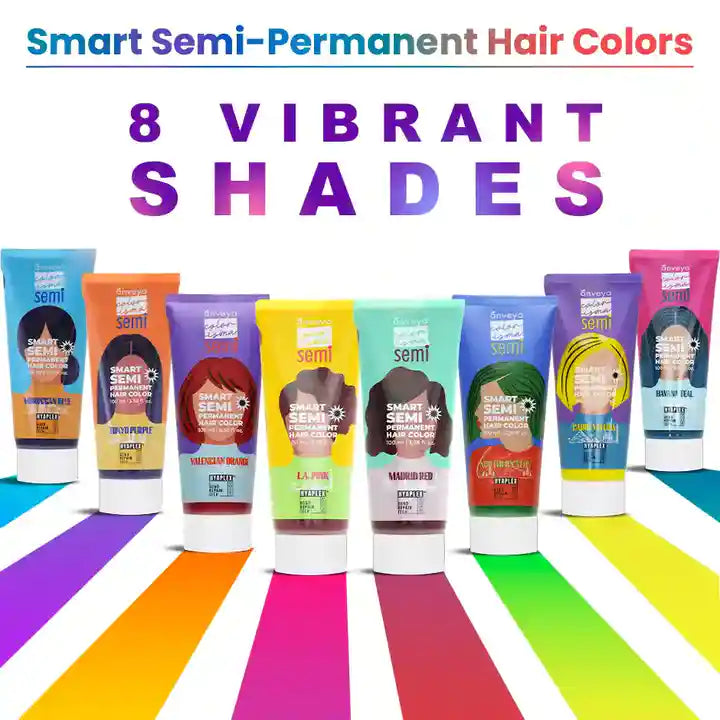
Dr. Deepthi Prasad, MBBS.
Written by Our Editorial Team
A flaky and itchy scalp can cause irritation and uneasiness. These are the common symptoms of dandruff and dry scalp, hence we often confuse both. To treat your scalp condition, you should be able to understand what scalp condition you are dealing with. These are two distinct conditions that have different causes and require different treatments. When it comes to dealing with dry scalp and dandruff, some key differences help us identify the difference between dandruff and dry scalp. In this blog, we will explain the difference between dandruff and dry scalp and also how to treat them. Keep reading for more information on dandruff and dry scalp.
What Is Dandruff?

Source : Shutterstock
The natural process of shedding hair and skin is known as ‘dander’ from which probably the term dandruff is derived. Dandruff, a common scalp disorder, is characterized by white flakes or yellow dead skin that are shed from the scalp onto clothes. The condition is caused by an overgrowth of Malassezia - a naturally occurring fungal organism that feeds on the oil produced by hair roots. Malassezia can grow out of control and cause inflammation. The cluster of dead skin cells that appear in the form of large white or yellow flakes on your scalp is known as dandruff.
Also Read : Defeating the dreaded dandruff
How To Treat Dandruff?
For effective dandruff treatment at home, use the best dandruff solution - ThriveCo Anti-Dandruff Pre-Shampoo Treatment. This dandruff serum has potent anti-dandruff ingredients -Octopirox, scalp hydrating ingredient Pentavitin, and Arginine which strengthens the hair follicles reducing hair fall and hair breakage.
What Is Dry Scalp?

Source : Shutterstock
The inability of the scalp to produce enough natural oil or sebum to keep your scalp hydrated causes dryness, and cracks on the scalp, which ultimately leads to shedding tiny flakes. Lack of moisture on the scalp makes it dry, itchy and flaky.
Several factors, such as extreme climatic conditions, hormonal imbalances, strong medication, or harsh hair care products, can trigger it. Itchy and flaky scalp are common symptoms of dry scalp. This is accompanied by dry and dull hair, as the hair lacks natural oil produced by the scalp.
How To Treat Dry Scalp?
You can combat dry scalp by restoring the moisture level of your scalp. It would help if you had a scalp serum specially designed for dry scalp. We recommend using ThriveCo Scalp Vitalizing Serum as it contains Advanced HA for deep hydration. It helps restore the scalp's moisture level and improves the scalp's barrier function, thus retaining moisture for a longer time. The copper peptide in this scalp serum has a calming effect on itchy, inflamed skin.
Also Read : Do You Need A Scalp Care Serum?
Buy ThriveCo's Scalp Care Kit
What's The Difference Between Dandruff And Dry Scalp?
The underlying cause of dandruff is different from that of dry skin. Dandruff results from an overgrowth of fungus. Lack of moisture is what causes a dry scalp. Dandruff is characterized by a greasy scalp and hair with large white or yellow flakes, while a dry scalp often exhibits dry and dull hair, with tiny flakes on the scalp along with tightness and itching. Treating dandruff involves using anti-dandruff shampoos and anti-dandruff treatment solutions while treating a dry scalp involves adding moisture back into the scalp. Most dandruff shampoos contain Zinc Pyrithione, Coal Tar, and Ketoconazole as primary ingredients for fighting dandruff. Vitalizing scalp serum is beneficial in restoring lost moisture and nourishment to your scalp.
Scalp problems like dandruff and dry scalp are annoying but can also be treated. Understanding the underlying cause of these conditions and using the right hair care product can reduce symptoms and promote a healthy scalp. It is important to seek a treatment for dandruff or dry scalp irrespective of the problem.
Frequently Answered Questions
1. How Do You Know If It's Dry Scalp Or Dandruff?
In the case of dandruff, you may notice a greasy scalp with large white or yellowish flakes on the scalp, whereas a dry scalp has small flakes on the dry scalp.
2. Can Dandruff And Dry Scalp Be Treated The Same?
Both dandruff and dry scalp have different causes and treatments.
3. What Are The Symptoms Of Dry Scalp?
Itchy, scaly, and flaky scalp are the common symptoms of dry scalp. The dry scalp also exhibits peeling of the skin that becomes inflamed and red.
4. Can Dry Scalp Cause Hair Loss?
Dry scalp, if left untreated, can become chronic, leading to hair loss, hair breakage, and hair thinning.
5. How Do You Treat Dry Scalp Naturally?
For treating dry scalp at home, look for natural skin-hydrating ingredients including Coconut, Argon Oil, Jojoba, Olive, and Aloe Vera. Appling hydrating avocado hair masks once or twice a week helps treat dry scalp naturally.
About Doctor :

Dr. Deepthi Prasad specializes in Dermatology, Cosmetology, and Aesthetic Dermatology and has been practicing for over 15 years. After completing MBBS from Dr. NTR University of Health Sciences Andhra Pradesh in 2009, she earned a MD in Dermatology, Venereology & Leprosy from Osmania Medical College in Hyderabad in 2014.
Disclaimer: All the content published on www.thriveco.in is solely for information purposes. It is not a substitute for professional medical advice, diagnosis, or treatment. Always consider seeking the advice of your physician or a qualified healthcare provider. The information, suggestion, or remedies mentioned on this site are provided without warranty of any kind, whether express or implied.




